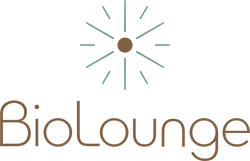As we all hold our collective breaths to see how the most recent omicron variant will affect our families and community, we continue to assess risk for our patients and provide ongoing strategies to support healthy immune function.
Current data indicates that while the omicron variant is less likely to result in hospitalization and death for healthy individuals, this COVID-19 variant is approximately 2-3x more transmissible. So, that means more people will get sick, but overall severity of illness is seemingly much lower than the previous variants.
Unfortunately, the contagious nature of this variant is already leading to more quarantines and shutdowns which continue to negatively affect us individually and as a community. Maintaining good health and immune function continues to be among our best tools in the ongoing era of COVID-19.
Risk Assessment at BioLounge
How are we assessing risk and helping our patients protect themselves not only from COVID-19 but acute and chronic illness as a whole? By applying the evidence-based fundamentals of healthy immunity response and recovery. Proactive prevention means identifying early markers of cellular dysfunction through regular screenings (we suggest annual comprehensive labs). Some of the laboratory markers we are paying attention to for viral prevention include:
1. Low vitamin D levels which are linked to higher risk contracting COVID-19 and experiencing more severe viral symptoms in general. A meta-analysis published in September 2021 concluded that vitamin D deficiency increased risk of contracting COVID-19 and increased risk of more severe symptoms. Knowing your Vitamin D levels is crucial at this time and we strongly recommend supplementing appropriately to keep serum Vitamin D levels between 50-80 ng/mL.
2. Neutrophil to lymphocyte ratio, an essential data point to assess disease risk. While neutrophils are involved in inflammation in response to microbial infection, chronic tissue damage, and cancer, lymphocytes drive immune responses that eliminate specific pathogens, infected cells, and in some cases, cancer and precancerous cells. A NLR of over 3 is concerning and over 5 increasing risk significantly. Assessing this ratio as part of a general screening allows us to dig deeper into immunity and work to correct fundamental imbalances or infections that reduce the ability to fight disease.
3. Serum zinc levels which are linked immune competence for good reason, zinc is essential for a strong and balanced immune system for many reasons including its role in the development and activation of cells during immune responses. While high-dosing zinc after COVID-19 infection has not been found to reduce symptoms or duration, sustaining a healthy serum zinc level can protect against viral infection. Zinc deficiency, which is estimated to affect 1/3 the world population, reduces the body’s ability to destroy bacteria, virus and cancer cells. A lesser known marker of zinc deficiency is low alkaline phosphatase levels (<45 U/L) , which is a component of the comprehensive metabolic panel.
4. HbA1c (hemoglobin A1c) is a measurement of average blood glucose levels and when elevated, can indicate a chronic inflammatory state that reduces the body’s ability to fight infection. This is consistently linked to higher risk of COVID disease severity. Reducing HbA1c to 5.5 or lower with diet and lifestyle is essential for maintaining a healthy immune system.
5. hsCRP (high sensitivity C-reactive protein) is an inflammatory marker, that when elevated can indicate a range of health problems including sleep apnea, cardiovascular disease and chronic infection. Any elevations in this protein require a deeper dive into inflammatory factors as hsCRP is correlated to severity of viral infections including COVID-19.
While these markers are our top 5 indicators of immune health and risk, the truth is that any laboratory marker indicating deficiency or elevation deserves a deeper look and a comprehensive assessment to promote optimal health and prevent infection and chronic disease.
Holistic prevention tools
Alongside annual laboratory screenings, the most effective dietary and lifestyle factors for disease prevention hold true for immune function:
- A whole food and plant-focused diet
- Regular exercise
- Stress management skills
- Deep and restorative sleep
- Clean air, water and food
Please contact our office if you are due for your annual laboratory screening and health assessment.
Learn more about prevention at BioLounge here.
About Megan Barnett, MS
 Megan Barnett is a functional medicine practitioner in Portland, Oregon. In her clinical practice, she helps patients identify the root cause of their health problems, then designs individualized and evidence-based approaches to alleviate symptoms and support healing. She has a Bachelor of Science in Dietetics from Kansas State University and a Master of Science in Nutrition and Functional Medicine from University of Western States.
Megan Barnett is a functional medicine practitioner in Portland, Oregon. In her clinical practice, she helps patients identify the root cause of their health problems, then designs individualized and evidence-based approaches to alleviate symptoms and support healing. She has a Bachelor of Science in Dietetics from Kansas State University and a Master of Science in Nutrition and Functional Medicine from University of Western States.

